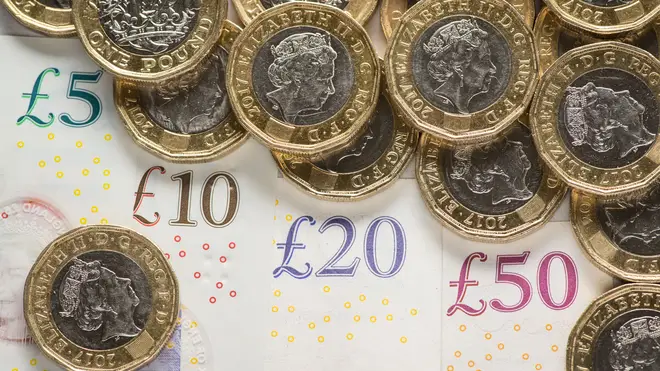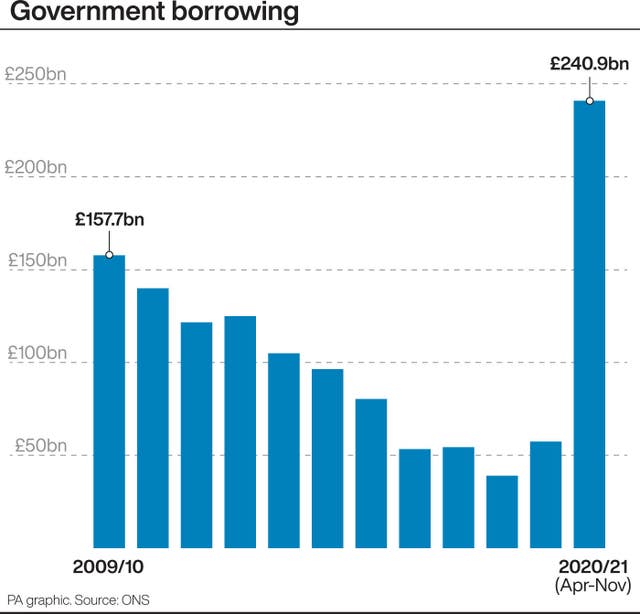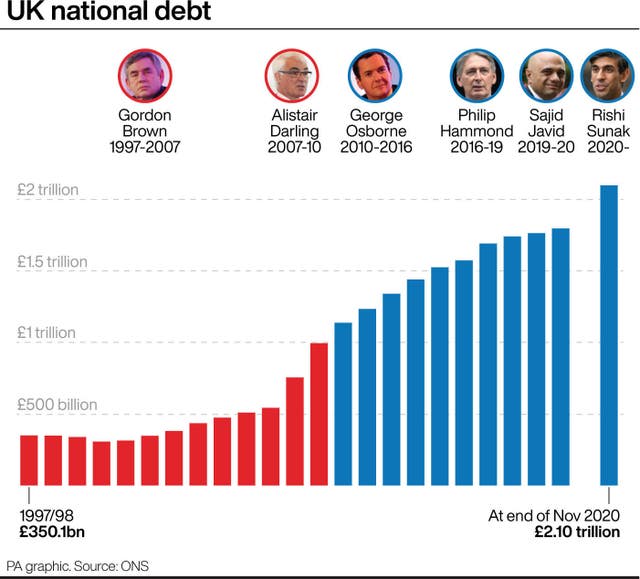
Henry Riley 7pm - 10pm
22 December 2020, 13:54

The Office for National Statistics said last month’s borrowing soared to £31.6 billion.
Government borrowing surged to a record £31.6 billion in November as efforts ramped up to support the economy through the second wave of the pandemic, official figures have shown.
The Office for National Statistics (ONS) said last month’s borrowing – excluding state-owned banks – soared by £26 billion year on year and marked the highest seen in November and the third highest in any month since records began in 1993.
The latest estimate saw public sector net debt reach a new all-time high of £2.1 trillion at the end of last month.

It means the UK’s overall debt is now around 99.5% of gross domestic product (GDP), which is a measure of the size of the economy – a level not seen since 1962.
Borrowing has hit £240.9 billion for the first eight months of the financial year – £188.6 billion more year on year and breaking yet more records.
Recent official forecasts from the Office for Budget Responsibility (OBR) predict borrowing could reach £393.5 billion by the end of the financial year in March, which would be the highest seen since the Second World War.
It comes after the Government launched more than 40 schemes across the UK to help households and businesses through the coronavirus crisis.
One of the most costly has been the furlough scheme for workers, which was last week extended again until April 2021.
The most recent figures from HM Revenue & Customs showed another £3.4 billion worth of claims were made between November 15 and December 13, taking total claims to £46.4 billion and 9.9 million furloughed jobs.

The OBR said it estimates the extra month of furlough will cost the Government another £3 billion, with an extra £4 billion to cover the extension to the three guaranteed loan schemes
But it cautioned it may be “many months” before the full public finance impact of the pandemic becomes clear.
“With a sharp resurgence in virus cases and the introduction of further health restrictions, prospects for the rest of the year remain highly uncertain,” said the OBR.
The ONS said borrowing rose as tax and National Insurance receipts fell by £38.3 billion – or 8.6% – year on year in the eight months to November.
But government support for individuals and businesses during the pandemic contributed to a 30% or £147.3 billion hike in central government spending.
Howard Archer, chief economic adviser to the EY Item Club, cautioned the furlough extension and extra Government support could send borrowing ballooning to more than £400 billion this financial year.
He said: “If the trend of the first eight months of fiscal year 2020/21 continued, the budget deficit would come in around £264 billion.
“However, it looks likely to come in significantly higher than this with the furlough scheme now being extended until April and other supportive fiscal measures announced for the economy in the recent Spending Review.
“Indeed, if introduced, more support for businesses affected by Tier 4 restrictions could potentially send the budget deficit above £400 billion.”